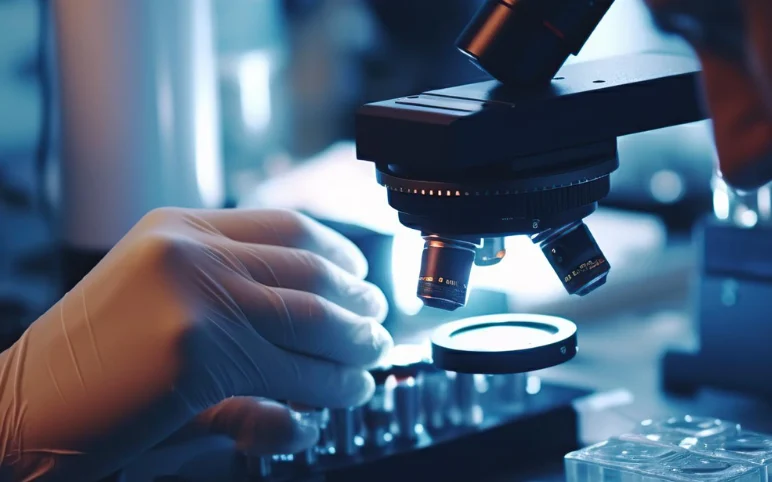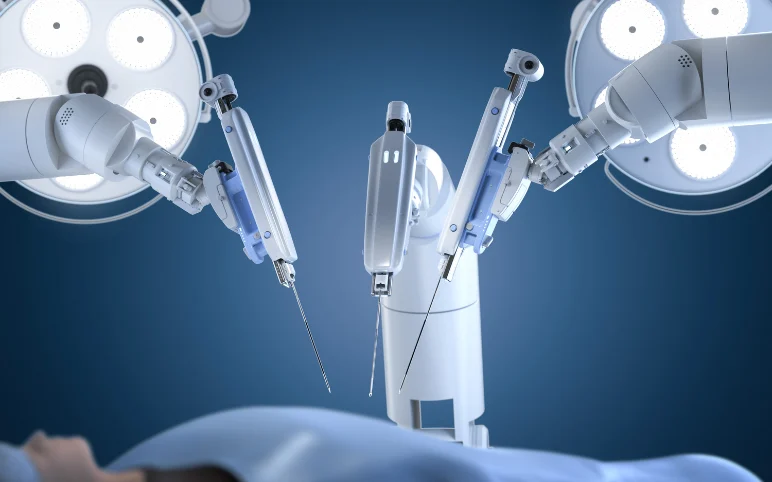BioCardia Receives FDA Breakthrough Device Designation for CardiAMP Cell Therapy System for Heart Failure
On February 03, 2022, The US Food and Drug Administration (FDA) has granted Breakthrough Device Designation for the CardiAMP® Cell Therapy System for the treatment of heart failure, according to BioCardia®, Inc., a developer of cellular and cell-derived therapeutics for the treatment of cardiovascular and pulmonary diseases. It was thought to be the first cardiac cell therapy to be designated as a Breakthrough Device by the FDA.
Carl Pepine, MD, MACC, Professor in the Division of Cardiovascular Medicine at the University of Florida said, “It is exciting for the field of cardiology that the FDA has recognized the potential of a cell therapy to improve the lives of patients struggling with heart failure. Getting this therapy fast-tracked and to patients more quickly than traditional methods would give us new options and a greater armamentarium to assist our patients in need. I am enthusiastic about completing the U.S. pivotal trial of the CardiAMP Cell Therapy to build the body of evidence necessary to support this accelerated FDA path”
Peter Altman, Ph.D., President and Chief Executive Officer of BioCardia said, “We thank the FDA for granting Breakthrough Device Designation to the CardiAMP Cell Therapy System and recognizing its potential to provide more effective treatment for heart failure, a major achievement for this unique therapy. The published results from our clinical trials to date have met our high expectations in showing the therapy’s ability to address the loss of heart function in ischemic heart failure. We look forward to completing our Phase III trial and engaging with the FDA as we move closer to the prospect of benefiting patients whose lives are severely impacted by this disease.”
The CardiAMP Cell Therapy Heart Failure Trial was a crucial trial in the United States that was recruiting patients to see if the CardiAMP Cell Therapy System may improve patient survival, reduce significant adverse cardiac events, improve functional capacity, and improve quality of life. On February 8, 2022, the trial was subjected to a predetermined official Data Safety Monitoring Board Review, which would examine the trial’s safety and futility. The results of this evaluation should be accessible within a few days after its completion.
According to DelveInsight’s ‘Congestive Heart Failure Treatment Devices – Market Insight, Competitive Landscape and Market Forecast, 2026”, as per CDC 2020 statistics, about 6.2 million adults in the United States have heart failure in 2020. Moreover, in 2018, heart failure was mentioned on 379,800 death certificates (13.4%) in the US. Therefore, rise in cases of heartfailure will prove to be a driving factor for the Congestive Heart Failure Treatment Devices market during the forecast period.
Stryker Introduces Tornier Shoulder Arthroplasty Portfolio and Launches New Tornier Perform Humeral System in Europe
On February 03, 2022, Stryker, one of the world’s top medical technology firms, officially launched the Tornier shoulder arthroplasty portfolio in Europe, with the Perform Humeral Stem as the first new Tornier product.
The new Tornier Perform Humeral Stem, which was supported by Blueprint planning software and the Tornier Perform Anatomic and Reverse Glenoid, provided clinical solutions for a range of basic to difficult shoulder arthroplasty cases. It’s designed for shoulder anatomic, reverse, and hemiarthroplasty procedures. In the event of revision, it also allowed for the conversion of an anatomic to a reverse shoulder prosthesis.
- The Tornier Perform Humeral Stem was created with four collar diameters and varying lengths in mind to enhance humeral fit and provide surgeons the power to perform while also giving them alternatives. Because of the emphasis on smaller stem alternatives, it’s great for dealing with tiny patient anatomies that provide specific problems.
- To accommodate the patient’s unique anatomy, the Tornier Perform Humeral Stem is compatible with the entire array of standard and augmented Perform glenoid options—for anatomic and reversing surgeries.
- BlueprintTM planning software enabled surgeons to plan their Perform cases advance and gives real-time, precise virtual surgery for increased confidence before entering the operating room.
Dr. Gilles Walch, Lyon, FR, one of the designers of the system said, “The Tornier Perform Humeral Stem gives the ability to use Blueprint to confirm surgical plans and optimize the full range of glenoid options available. With Perform, surgeons are better able to address the needs of both highly complex and simple patient cases.”
According to DelveInsight’s “Shoulder Replacement Devices Market” Report, the global market was valued at USD 1.68 billion in 2020, growing at a CAGR of 7.27% during the forecast period from 2021 to 2026, to reach USD 2.54 billion by 2026. The demand for Shoulder Replacement Devices is primarily attributed to the rapid success rate and increase in the number of surgeries due to advancements in technology, the rising popularity of reverse total shoulder arthroplasty for rotator cuff arthropathy in the growing geriatric population due to the widespread occurrence of bone-related disorders, the prevalence of sports injuries and accidents, and growing medical infrastructure and medical facilities. Moreover, the growing life expectancy for the population and increasing cases of arthritis due to a sedentary lifestyle are the key reasons responsible for the development of the Shoulder Replacement Devices market.
Genesis MedTech Acquires JC Medical, Creates New Structural Heart Franchise
On February 04, 2022, Genesis MedTech Group finalized the purchase of JC Medical (JCM), a structural heart firm specializing in the design and development of transcatheter valve replacement technologies for minimally invasive structural heart disease therapy. Genesis added J-Valve, a minimally invasive transcatheter aortic valve replacement (TAVR) device for patients with aortic regurgitation and stenosis, to its product line as a result of the purchase. This addition significantly enhanced Group’s capacity to better serve patients, interventional cardiologists, and cardiac surgeons.
J-Valve, created by JCM, is one of only two firms in the world to have successfully developed and commercialized a minimally invasive TAVR device approved for both aortic regurgitation and stenosis patients, and the first and only in China.
On the leadership front, Zhang Ji, the Founder and President of JCM, continued to oversee the company. He would also serve as the Chief Technology Officer for Genesis’ Structural Heart Franchise, utilizing his experience and skills to drive new product development and innovation.
Warren Wang, Chairman, and CEO of Genesis MedTech Group said, “The acquisition of JCM and J-Valve exemplifies the type of innovations we envisage as part of a growing Genesis portfolio. We are incredibly pleased to start a new Structural Heart Franchise, spearheaded by the best-in-class TAVR solution, J-Valve. By doing this we hope to better support cardiac surgeons and cardiologists in their fight against structural heart diseases.”
According to DelveInsight’s “Structural Heart Devices Market” Report, the global market was valued at USD 8.82 billion in 2020, growing at a CAGR of 11.23% during the forecast period from 2021 to 2026 to reach USD 16.70 billion by 2026. The demand for structural heart devices is primarily being boosted by the rapid growth in the prevalence of structural heart diseases, growing popularity of minimally invasive interventions, increase in the research and development activities in product development, the approval of new and advanced products, and the inclusion of structural heart devices in various reimbursement & insurance programs.
Ambu Announces FDA Clearance of Single-Use Gastroscope and Next-Generation Display Unit
On February 04, 2022, The Ambu® aScopeTM Gastro and Ambu® aBoxTM 2 received 510(k) regulatory approval in the United States, as per Ambu A/S. Ambu’s first sterile single-use gastroscope, the aScope Gastro, incorporated new superior imaging and design characteristics in a combined solution with next-generation display and processing technologies. The aBox 2 established a new standard in picture quality with its HD capabilities, and it was the heart of Ambu’s endoscopic ecosystem.
Ambu’s solution addresses the current limitations of reusable endoscopes with advanced technology, mobility, and cost-effectiveness, and it will be an appealing alternative for clients wishing to perform gastroscopies in a variety of care settings (including endoscopy unit, OR, ICU, ER, ASC). Furthermore, the aScope Gastro will assist healthcare systems in their attempts to minimize wait times and address personnel shortages, both of which have become more acute since the outbreak of COVID-19. Finally, the sterile offering addresses the rising danger of cross-contamination, which is especially concerning for sensitive patients.
Prof. Pradeep Bhandari, Queen Alexandra Hospital, Portsmouth, UK said “The Ambu system comes at a time where we’re dealing with waiting lists and staff shortages, and where the ease of setup and elimination of reprocessing, are major advantages. Also, the combination of a sterile single-use gastroscope and a compact display unit opens up the opportunity to expand endoscopy to alternative settings, such as Intensive Care Units.”
Reginald Bell, M.D., F.A.C.S, Institute of Esophageal and Reflux Surgery, Lone Tree, Colorado, USA, said “In the OR setting, having a single-use scope that is immediately available with a small footprint, which requires much less up-front capital outlay than a reusable setup, will be valuable to many hospitals across the country.”
Ambu would proceed with the commercialization of the aScope Gastro and aBox 2 in the United States since the FDA has given its approval.
According to DelveInsight’s “Gastroendoscopes Market” Report, the global Gastroendoscopes market was valued at USD 3.08 billion in 2020, growing at a CAGR of 6.69% during the forecast period from 2021 to 2026 to reach USD 4.53 billion by 2026. The Gastroendoscopes market is witnessing a positive market growth owing to the factors such as the increasing prevalence of various Gastrointestinal diseases such as gastro-oesophageal reflux disease (GORD), growing prevalence of stomach cancer and oesophageal cancer, rising cases of gastrointestinal procedures among the geriatric population, and rapid product development activities with respect to Gastroendoscopes among others.
Abbott Announces World’s First Implant of Dual-Chamber Leadless Pacemaker in Pivotal Trial
On February 07, 2022, As part of its AVEIR DR i2iTM pivotal clinical research, Abbott announced the world’s first patient implantation of a dual-chamber leadless pacemaker device. The first patient in the pivotal study to receive Abbott’s experimental AveirTM dual-chamber leadless pacemaker represented a significant technological milestone for leadless pacing technology.
Daniel J. Cantillon, M.D., clinical trial steering committee co-chair and Associate Section Head and Research Director of Cardiac Electrophysiology and Pacing, Cleveland Clinic, and Reinoud Knops, M.D., Ph.D., clinical trial steering committee co-chair and Department of Cardiology and Electrophysiology, Amsterdam University Medical Center, The Netherlands, co-chaired the study.
Abbott overcame the obstacle of synchronization of two leadless pacemakers by developing the company’s groundbreaking “i2i technology,” which allowed two leadless pacemakers, one in the right ventricle and the other in the right atrium, to communicate beat-by-beat. This method allowed for genuine dual-chamber leadless pacing by regulating the heart rate synchronously between chambers.
The first implant was performed at Na Homolce Hospital in Prague, the Czech Republic, led by site principal investigator Petr Neuzil, M.D., Ph.D., Head of the Department of Cardiology, and assisted by site co-investigator, Vivek Y. Reddy, M.D.
Dr. Daniel J. Cantillon said, “The first-in-human implant of a dual-chamber leadless pacemaker is a major clinical milestone that will open up new possibilities for patients requiring pacing support. Abbott has designed a device capable of treating these patients, and we’re excited to see this technology advance patient care.”
Randel Woodgrift, senior vice president of Abbott’s cardiac rhythm management business, said “The Aveir DR dual-chamber leadless pacemaker builds upon our Aveir VR single-chamber leadless platform, and we believe that once approved these systems have the potential to change the way doctors approach the treatment of abnormal heart rhythms. The involvement of world-class heart institutions in this study reinforces that the innovations we are developing are exactly the kind of advancements physicians around the world want for their patients.”
According to DelveInsight’s “Pacemakers Market” Report, the global Pacemakers market was valued at USD 4.63 billion in 2020, growing at a CAGR of 5.81% during the forecast period from 2021 to 2026, to reach USD 5.78 billion by 2026. The demand for Pacemakers is primarily motivated due to the rise in cardiovascular diseases (CVDs), superior treatment outcomes of sudden cardiac arrests, and growing technological advancements.
atHeart Medical Receives FDA Approval for the Second Phase of the ASCENT ASD U.S. IDE Trial
On February 08, 2022, atHeart Medical, a medical device company devoted to creating a new standard of care for the closure of atrial septal defects (ASD) announced that the second phase of its ASCENT ASD US Investigational Device Exemption (IDE) pivotal study has been approved.
The reSeptTM ASD Occluder, the first occluder with a metal-free, bioresorbable frame, was being tested in prospective, single-arm research to determine its safety and efficacy in the treatment of individuals with clinically significant, isolated ASDs. The primary outcomes would be compared to previously FDA-approved transcatheter ASD occluders’ performance targets.
The reSept ASD Occluder intended to solve the constraints of conventional occluders, which include metallic frames, which might put patients at risk of issues associated with long-term metal exposure in the heart and may limit future transseptal operations, such as mitral valve surgery. The company’s product has shown to be safe and effective in the closure of ASDs in the early stages of clinical trials.
Laurent Grandidier, CEO of atHeart Medical said, “I am pleased the first phase of enrollment in our pivotal trial progressed smoothly and according to plan, this is an exciting milestone for the company. As we initiate the second phase, our team is focused on adding clinical sites across the US and expanding internationally to include several enrolling sites in France. I commend the team’s diligence to further validating the safety and efficacy of the reSept ASD Occluder, a critical step in our journey to evolve septal closure and provide a better solution for patients.”
Dr. Scott Lim, Professor of Medicine & Pediatrics at the University of Virginia in Charlottesville, VA and a leading enrolling site in the trial commented, “The low-profile reSept Occluder is a dynamic system that allows for versatile physician control during the intervention, potentially adapting to the different patient anatomies to address ASDs. “Over time, reSept’s metal-free frame resorbs, leaving a minimal implant behind. This is an exciting advancement that provides the potential to preserve future treatment options and potentially do better for our patients.”According to DelveInsight’s “Congenital Heart Defect Devices Market“ Report, Medtronic Plc., Boston Scientific Corporation, St. Jude Medical, Inc., among others are the key players operating in the Congenital Heart Defect Devices market.



